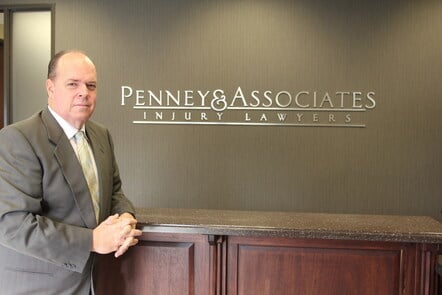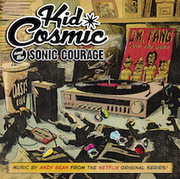New York, NY (Top40 Charts) Frederick Penney, the founding partner of Penney and Associates, injury lawyers, takes a hard look at why a law firm would hire a musician as a trial lawyer. https://www.penneylawyers.com/. With over 28 years' experience running a law practice Frederick Penney relates some practical advice, observations, and statistical analysis why a law firm or large company should hire a musician.
While looking on the internet I came across a Quora inquiry where someone was asking if they should become a musician or a lawyer. https://www.quora.com/Should-I-be-a-musician-or-a-lawyer-My-passion-is-music-but-I-think-the-law-would-give-me-more-of-a-stable-and-consistent-pay-check. There were several people that commented on this query and I asked myself as the managing partner of Penney and Associates, Injury lawyers, did we make the right move when hiring the rock star Dillion Whitsett as one of our newest lawyers? https://www.penneylawyers.com/dillon-whitsett/. The answer is yes and here is why hiring a musician as a lawyer in your firm may be a good thing. This also would apply to a corporate executive trying to determine whether one should hire a musician for corporate management. Maybe the musician does not want to become a lawyer or corporate executive but is forced to due to the lack of work for a musician. The United States Bureau of Labor Statistics noted that there were 175,600 musicians in the United States in 2019 and predicts an increase of 1% to approximately 177,200 musicians by 2029. This is the least projected growth of any profession in the United States. https://www.bls.gov/ooh/entertainment-and-sports/musicians-and-singers.htm#tab-6. On the other hand, the United States Bureau of Labor Statistics noted that in 2019 there were 813,900 lawyers in the United states and predicts by 2029 there will be approximately 846,300 lawyers which is a 4 percent increase. https://www.bls.gov/ooh/legal/lawyers.htm#tab-6.
Some notable people who are both musicians and lawyers are
Julio Iglesias, https://en.wikipedia.org/wiki/Julio_Iglesias;
Andrea Bocelli, https://en.wikipedia.org/wiki/Andrea_Bocelli; and Francis Scott Keys, https://en.wikipedia.org/wiki/Francis_Scott_Key. Ok Francis Scott Keys was not necessarily a well-known singer, but he did pen the Star-Spangled Banner.
Why would a musician make a good lawyer? What musical talents can be translated to the courtroom? Can a musician handle the rigorous workload of a lawyer? I have found having practiced as a trial lawyer over the past 28 years that one needs to have a certain demeanor and personality to relate to a jury. First, one must be comfortable in front of a jury, standing and talking to them and trying to convince them that you are the lawyer to listen to not your opponent. To be Frank, it is very essential that a lawyer must be very comfortable performing in front of people to master the art of becoming a successful trial lawyer. A musician (especially a singer) is used to being on the stage and performing in front of hundreds if not thousands of people. The audience is not always friendly and sometimes might be inebriated and have the tendency to be a little more critical of one's music. What does it take to become a successful lawyer and musician? How does an employer decide whether an applicant with a musical background is a positive or negative attribute? Dillion Whitsett of Penney and Associates is the lead guitarist and singer for the band Township. https://townshiptheband.com/meet-the-band. I asked Dillion Whitsett a few questions about balancing being a lawyer and a musician.
Asking a Lawyer and Musician Hard Questions
Q. Working as an attorney is time consuming, how do you have time to play in a band?
A. "While my career as an attorney extends far beyond the nine to five, the concerts we play are almost exclusively at night. Where other attorneys might spend their free time golfing, fishing, or hiking, I spend my extra time practicing and performing with the band. Having a creative outlet that is in some ways so drastically different from the atmosphere of a law office provides a release that motivates and inspires me. I love to create whether that entails a legal argument or music."
Q. How is law practicing law similar to playing music?
A. "Music is basically governed by a set of rules (which are occasionally broken) called music theory. This is essentially the law of music. Just like the law, music theory is a living doctrine that is constantly evolving with cultural and technological changes and innovations. The law, like music, relies on a doctrine of precedent. The term for this precedent is known as Stare Decisis which is Latin for, to stand by things decided. The legal landscape today is influenced and shaped by what has been decided before. For example, the landmark United States Supreme Court case of Brown v. Board of Education influences our legal framework to this day. https://www.uscourts.gov/educational-resources/educational-activities/history-brown-v-board-education-re-enactment. Similarly, the world of pop music was forever changed after The
Beatles released their groundbreaking album Sgt. Peppers Lonely Hearts Club Band, which continues to influence artists today."
Q. Is the preparation for arguing a case the same as playing music in front of a crowd?
A. "Yes. I believe the secret of being great at anything is preparation, work, work, and more work. Nothing comes easy if you want to become the best at what you do. Whether practicing a song over and over or preparing exhaustively over and over on a case, it is the same. I have heard people tell me that there is some luck in becoming successful. This is true but one must always put themselves in a position by working hard to get in the position to become lucky."
Q. Dillion how do you believe being a musician has helped you become a better lawyer?
A. "Humm, being a young trial lawyer sometimes seems easier than being up on a stage with people yelling and hollering at you, some happy that you are up there and some not so happy. My job as a lawyer is to convince jurors that my presentation, facts, and evidence are more credible than the other lawyer. This means I must be up in front of jurors talking to them, which is no different than being up on stage attempting to make people happy and enjoy my music. Standing on stage is a nerve-racking experience, you expose yourself and your work to a crowd of strangers. The years of experience performing for large audiences has conditioned me to overcome any fear and perform freely with spontaneity, poise, and confidence. This quality in turn helps me in my law practice when dealing with different personalities, judges, lawyers, and juries. Having that good stage presence is critical in both of my professions."
Q. Dillion, do you believe you will always continue to work as a lawyer and perform as a musician in the evenings?
A. "Well, that is an easy answer, I think the odds are that there will be better paying work as a lawyer than as a musician. Plus, I get satisfaction being a lawyer helping people while doing the same as a musician helping people forget about their problems for a short time.
I talked to Stewart Galbraith the supervising trial attorney over Dillion Whitsett. https://www.penneylawyers.com/stewart-p-galbraith/. I wanted to ask him why he felt hiring a musician as a young new lawyer at Penney and Associates was a benefit to the firm. His answer was quite candid. "Since the pandemic Dillon's band has not been able to play anywhere this past year, so recently it has not affected him at all. In fact, I would say that this has had a negative effect on him. However, prior to the pandemic, I noticed that Dillon was more energized and eager for the weekend to tour with his band. The long hours at the office or in court representing his clients was another high for him but by the weekend he was ready to play the rock star in front of a crowd. A tenacious but mild-mannered attorney by day, but a wild rocker on the weekend brought balance to Dillon's life. Maybe that is because he is young and spry, but I believe the music fills his soul and reenergizes him. If this is what he needs to come to work on Monday ready and rejuvenated to work, then more power to him."
Every employer must ask what a potential hire brings to the table that will help inspire others within the company and what outside interests may be a positive influence on the employee. As for Penney and Associates we found a gem in Dillon Whitsett, a rock star lawyer during the day and a rock star musician by night.
























